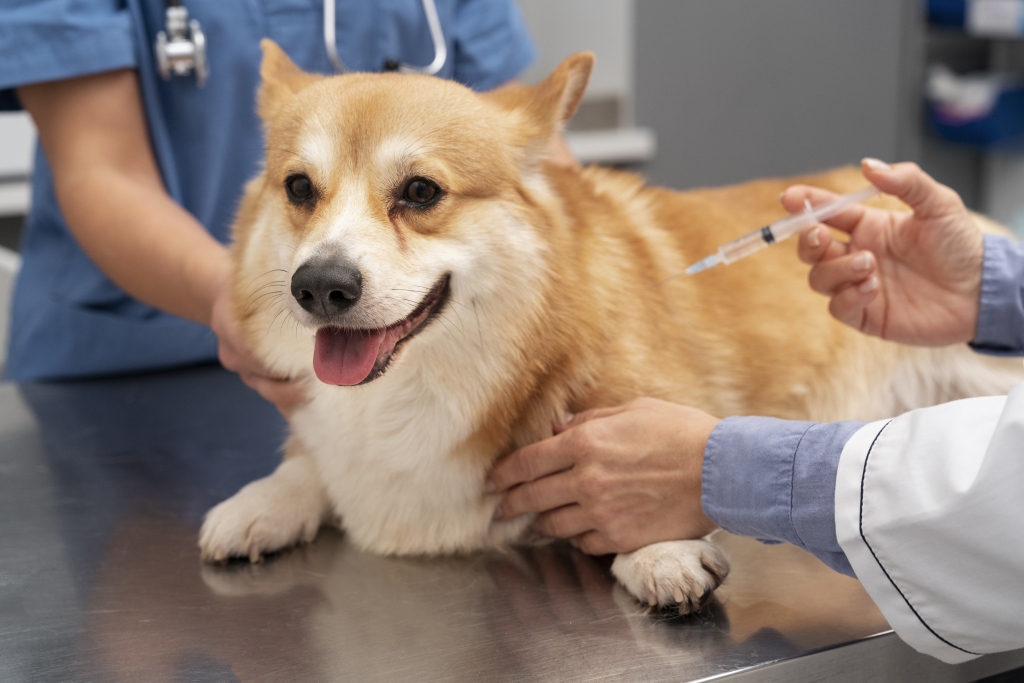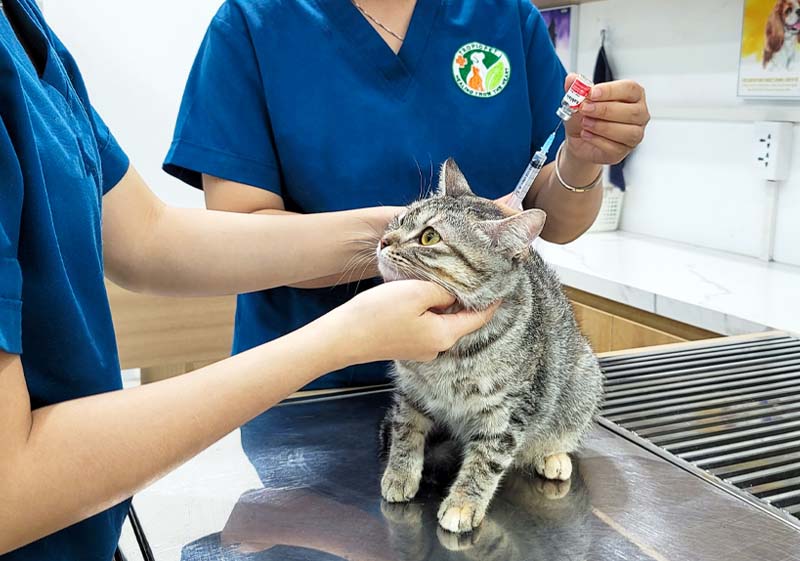Mandatory Vaccines for Dogs Besides Rabies (Canine Distemper, Parvovirus, etc.)
When it comes to responsible pet ownership, vaccination is one of the most important aspects of protecting your dog’s long-term health. Most people are aware that the rabies vaccine is legally required in many countries, but rabies is not the only serious disease that can threaten dogs. In fact, several other viral and bacterial infections can cause life-threatening illness if left unprotected.
This article will explore the core vaccines for dogs besides rabies—such as canine distemper, parvovirus, adenovirus, and parainfluenza—as well as non-core vaccines that may be recommended based on your dog’s lifestyle and environment.
Why Vaccination Is Essential
Vaccines work by stimulating the immune system to recognize and fight specific pathogens before they can cause disease. Puppies are especially vulnerable because their immune systems are still developing. By following a proper vaccination schedule, dog owners reduce the risk of outbreaks, protect their own pets, and contribute to broader community health by limiting the spread of infectious diseases.
Core Vaccines for Dogs Besides Rabies
While rabies is universally recognized as a critical vaccine, veterinary experts classify several other vaccines as “core” because they protect against highly contagious, severe, or widespread diseases.

Canine Distemper
Canine distemper is a viral disease that affects a dog’s respiratory, gastrointestinal, and nervous systems. Symptoms include fever, nasal discharge, coughing, vomiting, diarrhea, and neurological signs such as seizures. Distemper is often fatal, especially in unvaccinated puppies. Fortunately, vaccination provides strong protection, and cases have significantly decreased in areas with widespread immunization.
Canine Parvovirus (CPV)
Parvovirus is one of the most feared infections among dog owners due to its rapid spread and high mortality rate in puppies. The virus primarily attacks the gastrointestinal tract, causing severe vomiting, bloody diarrhea, dehydration, and extreme weakness. Without immediate veterinary treatment, parvovirus can quickly lead to death. The vaccine is highly effective and considered a core requirement for all dogs.
Canine Adenovirus (Hepatitis)
Canine adenovirus type 1 (CAV-1) causes infectious canine hepatitis, which can damage the liver, kidneys, and eyes. Symptoms may include fever, abdominal pain, jaundice, and even sudden death in severe cases. The vaccine uses canine adenovirus type 2 (CAV-2), which provides cross-protection against both CAV-1 and CAV-2, while also helping reduce respiratory disease.
Canine Parainfluenza Virus
Parainfluenza is one of the major causes of kennel cough, a highly contagious respiratory illness that spreads quickly in places where dogs gather, such as kennels, grooming facilities, and dog parks. Although it is usually not life-threatening on its own, parainfluenza can cause significant discomfort and may lead to complications. The vaccine is usually included in combination shots with distemper, parvovirus, and adenovirus.
Non-Core but Important Vaccines
In addition to core vaccines, veterinarians may recommend other vaccines depending on where you live and how your dog interacts with its environment.
-
Leptospirosis: This bacterial infection spreads through water or soil contaminated with urine from infected animals. It can cause kidney and liver failure and may also infect humans.
-
Bordetella bronchiseptica: Another major cause of kennel cough. Many boarding facilities require proof of this vaccine before admitting dogs.
-
Lyme disease: Transmitted by ticks, Lyme disease can cause joint pain, lameness, fever, and kidney problems. Dogs in areas with high tick populations are especially at risk.
-
Canine Influenza: Outbreaks of canine influenza virus have been reported in several countries, particularly in places where dogs are housed together. Vaccination may be recommended during active outbreaks.
Puppy Vaccination Schedule
Puppies typically begin receiving vaccines at 6–8 weeks of age, with booster shots every 3–4 weeks until about 16 weeks. The core combination vaccine—often called DHPP or DA2PP—covers distemper, adenovirus, parvovirus, and parainfluenza. Rabies is usually given once the puppy reaches the appropriate age, depending on local regulations.
Adult dogs require regular booster shots to maintain immunity. The exact timing can vary depending on the vaccine used, your dog’s health status, and your veterinarian’s recommendations.
Travel and Legal Considerations
If you plan to travel internationally with your dog, keep in mind that rabies vaccination is mandatory in nearly all countries. However, many airlines and border authorities may also require proof of vaccination for other diseases. Ensuring your dog’s vaccines are up to date not only protects its health but also prevents travel delays and quarantine issues.
Final Thoughts
Vaccination is not just about following legal requirements for rabies. Core vaccines such as those for canine distemper, parvovirus, adenovirus, and parainfluenza are equally vital in protecting your dog against severe and often fatal illnesses. Non-core vaccines like leptospirosis, Bordetella, Lyme disease, and canine influenza provide additional protection based on risk factors.
By working with your veterinarian to create a tailored vaccination plan, you can safeguard your dog’s health, ensure a longer and happier life, and contribute to the well-being of the wider pet community.
Read more:














